GENERAL
Ghana Beyond Aid significant for post COVID-19 devt — Osafo-Maafo
Published
4 years agoon
By
Frimpong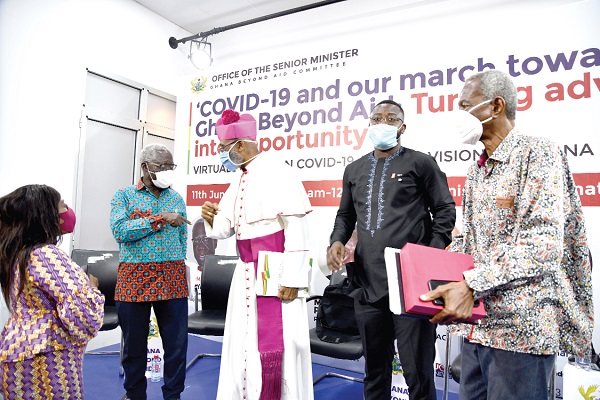
The Senior Minister, Mr Yaw Osafo-Maafo, has said Ghana Beyond Aid agenda will be relevant in shaping the country’s progress in a post COVID-19 era.
He said the agenda which will encourage local participation would be devoid of partisan politics, adding “what is important now is setting a system of implementation. It should not be reduced into another talking shop.
“We should not just be talking about it, but we should find a way of getting these lofty ideas implemented and I am already discussing with some members of the leadership of Parliament to get the matter cast in Parliament.’
The minister was speaking at a national forum on Ghana Beyond Aid in Accra yesterday on the theme: “COVID-19 and our march towards Ghana Beyond Aid: Turning adversity into opportunity”.
Panellists
Panellists at the forum emphasised the need for the country to use the coronavirus disease (COVID-19) pandemic as an opportunity for deeper introspection on how to build a resilient economy for Ghana to wean itself from foreign aid.
They called for a national consensus to mobilise both human and material resources for sustainable development.
The speakers included an economist, Mr Kwame Pianim; the Metropolitan Archbishop of Cape Coast, the Most Rev. Charles Gabriel Palmer-Buckle; the Secretary-General of the Trades Union Congress (TUC), Dr Yaw Baah; the President of the Association of Ghana Industries (AGI), Dr Yaw Adu-Gyamfi, and the Chief Executive Officer (CEO) of the Ghana Export-Import Bank (GEXIM), Mr Lawrence Agyinsam.
In separate statements at the forum in Accra yesterday, they said reliance on local resources in the period of COVID-19 was a wake-up call for the country to rethink its educational system and also promote local industries to grow.
Forum
The forum discussed the need for an educational system that inculcated core national values in citizens, the future of aid in Ghana’s economic development and strategic investments in the private sector.
Attitudinal change
The Most Rev. Palmer-Buckle described the GBA Charter as a vision for the transformation of the country’s development trajectory.
However, he said, for the GBA to succeed, it would require the renewal of mindsets and change of attitude “to put the Ghanaian right, so that Ghana will be right”.
He said there was also the need for the Ghana Education Service (GES), the National Commission for Civic Education (NCCE), faith-based organisations (FBOs) and civil society organisations (CSOs) to work together and come up with strategies on how fundamental values, such as patriotism, discipline, volunteerism, honesty and accountability, could be incorporated into the country’s educational system.
He said while focusing on science, technology, engineering and mathematics (STEM), it was important to strike a balance in the character formation of people by giving equal attention to the humanities and literary arts.
“There is a gap in character formation because we have focused so much on STEM, which is the hardware, and forgot about the software, which are the values we need to believe in Ghana,” the Archbishop added.
Local capacity
Mr Pianim, who spoke on the history and future of aid in Ghana’s economic development, said the building of local capacity was key if the GBA agenda would be realised.
He described the GBA as a development initiative that needed all stakeholders on board to survive political regimes and become a national dream.
“While putting this GBA document together, the second largest political party in this country was not part of it, so there is no guarantee that it will not be changed in the future. We need to build more consensus for the GBA, going forward,” the economist added.
He said the COVID-19 pandemic was an opportunity for more to be done for the mobilisation of resources and strategic investments to make Ghana self-sufficient.
“It is time for us to be walking the talk, not just talking because it is a challenge for us to walk our way out of poverty,” Mr Pianim said.
Policies
Mr Agyinsam, also said the time had come for the government to have a deliberate policy on investment in key sectors of the economy to promote the GBA agenda.
Citing GEXIM’s investment in the pharmaceutical and the garment industries to buttress his point, he said those two sectors demonstrated that given the right support, the country could be self-sufficient.
Dr Adu-Gyamfi also underscored the need for the creation of synergies between government policies and the private sector for national development.
He said to promote the GBA agenda, it was important for the government to formulate policies that would support the growth of industries.
According to him, value addition, leveraging on technology and prioritisation of manufacturing were key factors for such an agenda to succeed.
For his part, Dr Baah reiterated the need for more to be done to formalise the economy and move the majority of the working population from the informal sector.
He said national identification, a digital address system and a robust digitisation system were needed to actualise the GBA agenda.
graphic.com.gh
You may like
-
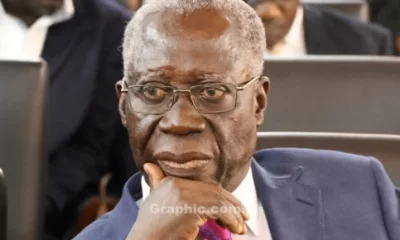

Ghana’s economy will collapse should govt provide fuel subsidies – Osafo-Maafo.
-


Covid-19: Vaccines should work against Omicron variant – WHO.
-


Covid-19: Ghana’s active coronavirus cases drop to 775
-
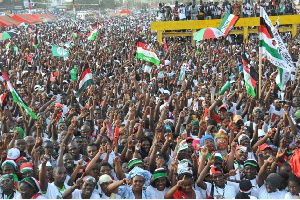

Political rallies don’t cause spikes in coronavirus cases – GHS
-
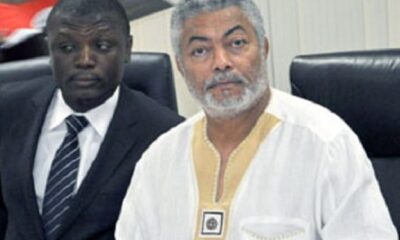

Covid-19 is not responsible for Rawlings’s death – Kofi Adams
-


RELIEF: Hearts players and management free from COVID-19, set to play Ashantigold on Tuesday
-


AfDB Gen Secretary: KIA: $150 for COVID-19 test scary
-
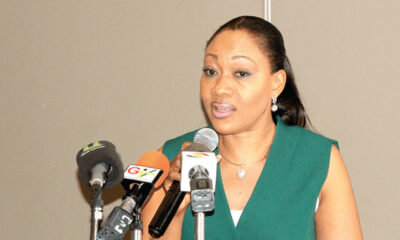

EC – COVID-19 Ambassadors will be deployed to all polling stations
-


Big Blow: Three Hearts of Oak players test positive for COVID-19























